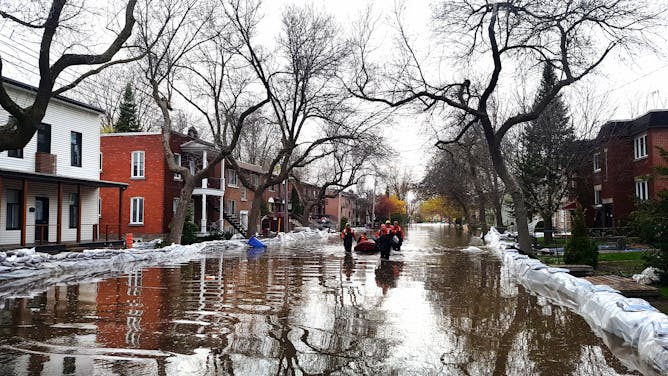|
It’s something virtually every Canadian has experienced – a significant delay to get access to some aspect of the health care system, be it waiting months to have an MRI or to see a specialist. Today in The Conversation Canada, Chris Simpson of the Queen’s University has some ideas on how to fix the wait time problem – including establishing a national strategy to deal with seniors’ health issues.
There was more violence in the Middle East on Monday – dozens of Palestinians were killed during protests about the relocation of the U.S. embassy in Israel to Jerusalem. (See the story from The Conversation UK below.) It’s a controversial foreign policy decision by U.S. President Donald Trump, as was last week’s decision to pull out of the Iran nuclear deal. Howard Adelman of York University takes a hard look at the Iran deal and says Trump’s high-stakes gamble could work.
Louis Volante of Brock University and two international professors report on their new research about how immigrant students perform in their new countries – and how some Canadian provinces are doing a great job at accommodating new students.
And finally, communities in British Columbia and New Brunswick are still dealing with serious flooding this week. Michael Drescher of the University of Waterloo looks at the vulnerability of urban areas to flash floods as climate change has brought on more intense rainfall.
Regards,
|

Nearly every Canadian family has a wait time story. This is because our system is not designed to provide optimal care for patients with multiple chronic diseases.
(Shutterstock)
Chris Simpson, Queen's University, Ontario
To improve wait times for surgery, Canada needs to fix its health-care system. Developing a national seniors' strategy would be a good place to start.
|

Iranian protestors burn a representation of a U.S. flag during a gathering after their Friday prayer in Tehran, Friday, May 11, 2018. Thousands of Iranians took to the streets in cities across the country to protest U.S. President Donald Trump’s decision to pull out of the nuclear deal with world powers.
(AP Photo/Vahid Salemi)
Howard Adelman, York University, Canada
President Donald Trump's move to pull the U.S. out of the Iran nuclear deal has been met with dismay by the Europeans. But could his high-stakes gambit actually work in getting a better deal?
|

Both first- and second-generation immigrants in British Columbia and Ontario outperformed their non-immigrant counterparts in science literacy, in the 2015 Organisation for Economic Cooperation and Development Programme for International Student Assessment.
(Shutterstock)
Louis Volante, Brock University; Don A. Klinger, University of Waikato; Dr. Melissa Siegel, Maastricht University
First and second-generation immigrants perform well in many Canadian provinces that take an "accommodation" approach.
|

Flood waters rise in the Montreal neighbourhood of Cartierville in May 2017.
(Fred/flickr)
Michael Drescher, University of Waterloo
The risk of urban flooding is rising. Overall, residents and municipalities are ill prepared, but there are steps homeowners can take to protect themselves.
|
Politics
|
-
Brendan Ciarán Browne, Trinity College Dublin
International NGOs are promoting a 'resilience agenda' that masks their own failings in Palestine.
-
Michael Blake, University of Washington
The bullshitter may do even more damage than the liar in politics.
|
|
Environment + Energy
|
-
Julia Jabour, University of Tasmania; Rachael Lorna Johnstone, University of Akureyri
Iceland is set to resume commercial whaling in June after a two-year hiatus, arguing that the moratorium put in place by the international community was never intended to be an open-ended ban.
|
|